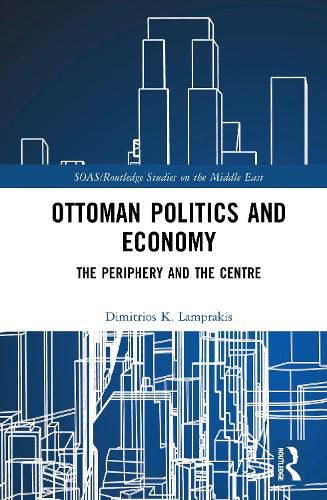Readings Newsletter
Become a Readings Member to make your shopping experience even easier.
Sign in or sign up for free!
You’re not far away from qualifying for FREE standard shipping within Australia
You’ve qualified for FREE standard shipping within Australia
The cart is loading…






This book examines the history of the transformation of the small town of Kozani, situated in modern Greek Macedonia, into a vibrant commercial hub and self-administering community during the period of Ottoman rule, c. 1400-1821.
Beginning with a comprehensive examination of the foundation myths as recorded in local amateur historical works, the book then proceeds with a reconstruction of the foundation of Kozani as a small village during the chaotic Ottoman conquest of Macedonia in the fourteenth and fifteenth centuries. It then examines the history of the village using extant Ottoman and Greek documentation, as well as available Ottoman and European travelogues and geographical treatises. Key moments are highlighted in the socio-economic transformation of the village into a thriving commercial hub and religio-political and administrative centre during the sixteenth, seventeenth, and eighteenth centuries. To that end, it discusses the taxation status of Kozani and more particularly the establishment and administration of the malikane life-term tax-farming system. The book also examines local myths about communal strife, applying the scheme of bilateral factionalism to explain the repeated waves of intra-communal violence that almost tore the settlement apart.
Shedding new light on an area long overlooked by Ottoman historians, the book is vital reading for those interested in the history, politics, and economy of Ottoman, Islamic, and Balkan towns.
$9.00 standard shipping within Australia
FREE standard shipping within Australia for orders over $100.00
Express & International shipping calculated at checkout
This book examines the history of the transformation of the small town of Kozani, situated in modern Greek Macedonia, into a vibrant commercial hub and self-administering community during the period of Ottoman rule, c. 1400-1821.
Beginning with a comprehensive examination of the foundation myths as recorded in local amateur historical works, the book then proceeds with a reconstruction of the foundation of Kozani as a small village during the chaotic Ottoman conquest of Macedonia in the fourteenth and fifteenth centuries. It then examines the history of the village using extant Ottoman and Greek documentation, as well as available Ottoman and European travelogues and geographical treatises. Key moments are highlighted in the socio-economic transformation of the village into a thriving commercial hub and religio-political and administrative centre during the sixteenth, seventeenth, and eighteenth centuries. To that end, it discusses the taxation status of Kozani and more particularly the establishment and administration of the malikane life-term tax-farming system. The book also examines local myths about communal strife, applying the scheme of bilateral factionalism to explain the repeated waves of intra-communal violence that almost tore the settlement apart.
Shedding new light on an area long overlooked by Ottoman historians, the book is vital reading for those interested in the history, politics, and economy of Ottoman, Islamic, and Balkan towns.